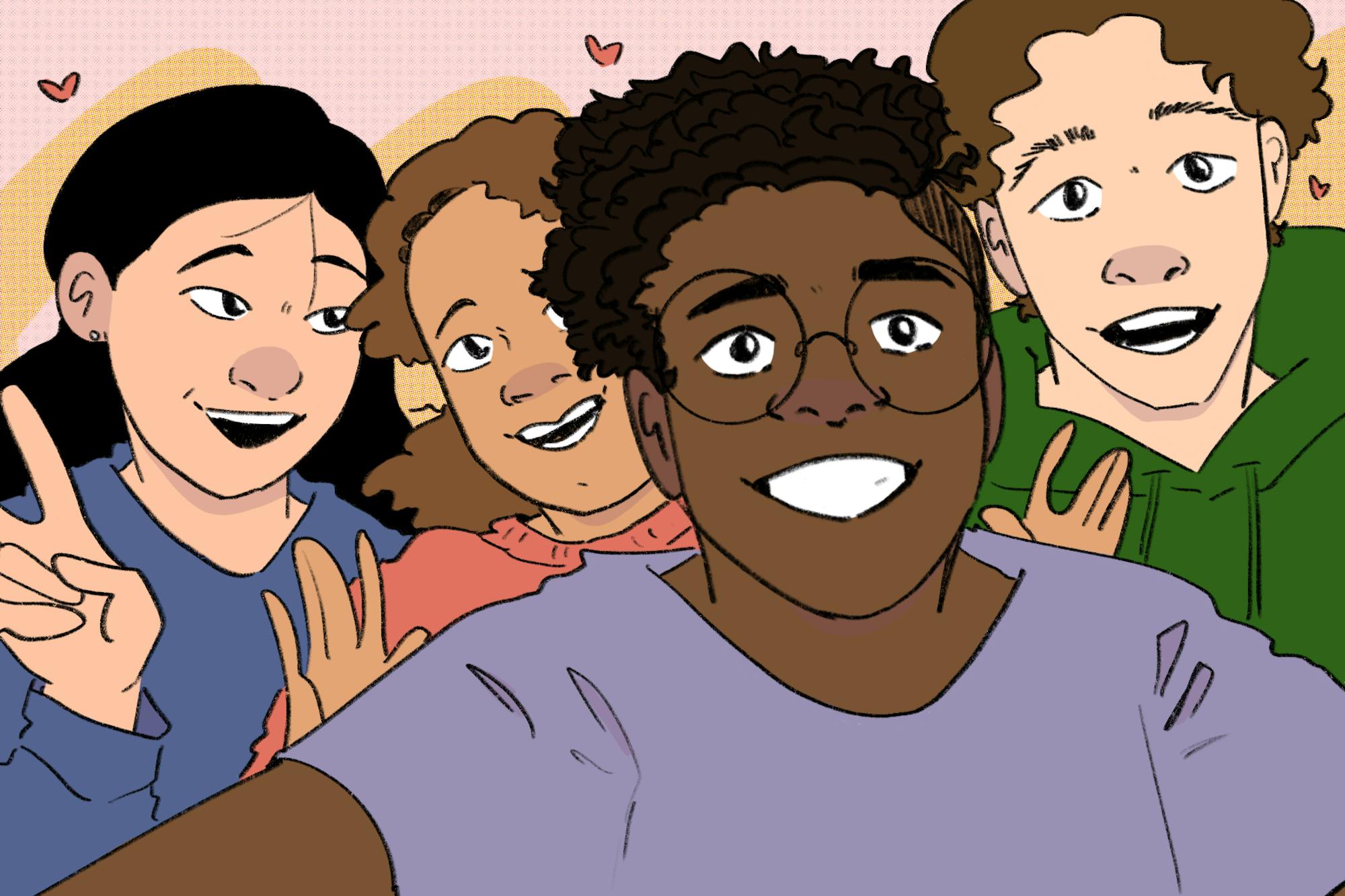When asked to picture a Dartmouth tradition, events such as the Homecoming bonfire, the annual snowball fight and Green Key might come to mind. While these school-wide events draw large crowds and attention, smaller communities — such as individual friend groups or campus organizations — have created their own unique traditions.
Lily Sweeney ’25, for example, created a Sunday-night tradition dubbed “Nail Sundays” — when she and friends get together to paint their nails each week. Sweeney said she began the tradition in high school and decided to introduce the ritual to her college friends.
“We’d all just bring our different polishes, lay them out on the counter and then each person would pick what they wanted,” Sweeney said. “It was super fun and very communal, and very much about sharing.”
Sweeney said she invites her housemates and other friends to join the Sunday ritual. Since she lives in a house with eight girls, there is “a rotating cast of characters” who join the tradition from week to week.
“Nail Sundays” also give Sweeney time to “reset” after a busy work day, as she and her friends will usually drink tea or watch a movie while painting their nails.
“Normally, I spend my Sundays doing work all day, so it’s nice to have something to look forward to … on a day that is normally really stressful,” Sweeney said.
Sweeney added that — given the pressure for Dartmouth students to prioritize academics over social activities — it is important to ensure she and her friends “had carved out a little time in our week” to spend time together.
In addition to immediate friend groups, some collective traditions take place within a more structured environment, such as Living Learning Communities — residential communities for students with a shared language, identity or interest.
Fabricio Lopez ’24, a member of the Max Kade German Center, said his community has many different traditions, such as a weekly lunch at the Class of 1953 Commons. During the lunch, Lopez said, the group commits to speaking only in German. Members also organize other weekly events such as film screenings, dinners and other German-related cultural events, which usually have around 10 to 15 participants.
While some traditions, such as the weekly lunch, are more established, others are still budding. For instance, the LLC organized a trip to Boston last spring to see a play, and the group has similar plans to see a movie this spring, Lopez said. He added that the Boston trip could evolve into a yearly tradition.
“I feel very fortunate to be able to participate in these events,” Lopez said. “Many of these events require careful planning [or] require getting funds from the German Studies Department. On my own, it [would] be very difficult to do this.”
The fourth floor of Rauner Hall, which houses three LLCs — Asian and Asian American, Interfaith and Great Issues Scholars — also has its own special traditions, according to Hannah McGee ’27, who is a member of the latter.
McGee said her floor in Rauner Hall — where members of Great Issues Scholars live — has a tradition of going to Late Night at the Class of 1953 Commons every night around 11:30 p.m. During these nightly treks, the group uses their meal swipes to create “a communal snack bin” housed in a kitchen cabinet.
“[The number of people who go to Late Night] just depends on how much work people have,” McGee said. “Sometimes on nights where people are really busy, it’ll be [around] five people, but we’ve had times where it was 15 or 20.”
McGee’s floor also has a tradition of pitching in to get a cake for their floormates’ birthdays.
“We sing happy birthday in all of our languages, which ends up being like seven languages,” McGee said.
McGee said her experience living on the fourth floor of Rauner and partaking in the group’s traditions helped her bond with other Great Issues Scholars members, especially during the transition to Dartmouth.
“It’s been a really good way to make friends … [and] to help other people make friends,” McGee said. “We have our fourth floor people, but we also have friends we call ‘fourth floor frequenters,’ and those are people we basically adopted who go to [the] fourth floor every single night and do their homework with us.”
After taking a peek at these corners of campus, it is clear that traditions are powerful, no matter how simple or relatively insignificant they may seem. So plan that movie night, dye your hair and build that snowman, and who knows? You might end up wanting to do it again, and again and again.




